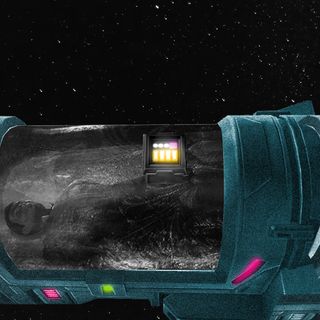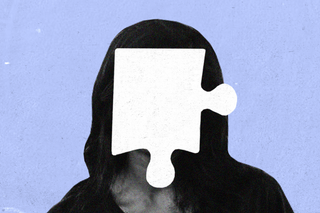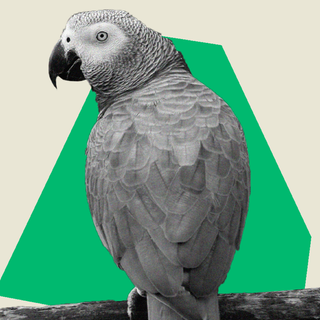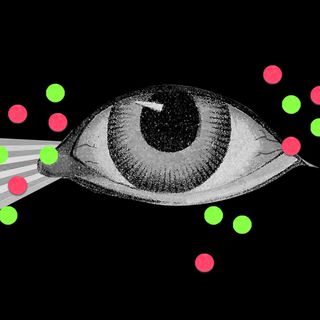
Why Some People Struggle To Recognize Faces
“Face blindness” is a cognitive disorder that makes it difficult to tell unknown faces apart, and sometimes, faces from objects.

You know when uncles and aunties at Indian weddings come up to you and say: “Oh my God, beta, you’ve grown up so much! Remember me? The last time I saw you, you were so little!” If you have had to deal with this, you probably know how lost it makes you feel because you often have absolutely no idea who they are. Well, that’s normal — it means you’re just an average human being, who doesn’t have memories dating back to the time you were Thumbelina-sized.
However, for 2% of the world’s population, not being able to recognize people is an everyday struggle. Imagine being as lost as you felt at that wedding during most social interactions almost every day of your life. Perhaps, that’s what ‘face blindness’ or prosopagnosia feels like.
As an article on New Scientist states, “If you can’t tell Angelina Jolie from Jennifer Aniston, total ignorance of pop culture might not be the only culprit.” But, leave alone celebrities, face blindness can impact one’s ability to recognize just about anyone else. Interesting factoid here though: Brad Pitt believes he is face-blind too.
“While anyone can have trouble recognizing faces and names, prosopagnosics can’t even identify their own parents and relatives,” an article in The Atlantic reads. It goes on to describe how they rely on “non-facial information like hair color, gait, and tone of voice to distinguish people.”
Derived from Greek, prósōpon, means “face”, and agnōsía, means “non-knowledge.” It is, basically, a cognitive disorder that impacts one’s ability to recognize faces — sometimes, even their own. For many, “distinguish[ing] a face as being different from an object” can also be a difficult task.
Related on The Swaddle:
Why We See ‘Human Faces’ in Objects Sometimes
The condition generally affects absolutely nothing else though — neither IQ, nor memory, nor decision-making skills. However, it may impact people’s ability to navigate — especially when it comes to processing angles or distance, or remembering places and landmarks.
“For most of his childhood, Choisser thought he was normal… Other people recognized their mothers on the street. He did not. During the 1970s, as a small-town lawyer… he struggled to convince clients that he was competent even though he couldn’t find them in court,” an article on Wired states, describing Bill Choisser, who popularized the term face blindness for his condition. Not only that, given the lack of awareness on the subject and the subsequent lack of research on it, he also created a Yahoo group and a website to enable people with the condition to share their experiences with one another.
Can you imagine how offended the uncles and aunties, who you haven’t met in decades, would be if you outright told them you couldn’t recognize them? Sometimes, we get offended if a close friend — or God forbid, a partner — can’t recognize our voice on the phone, don’t we? Given how egotistical human beings can be, perhaps, you can imagine how socially crippling face blindness can be.
So, perhaps, it was the fact that in 1979, Choisser had to uproot his career and move away from his friends and family at 32 after prosopagnosia impacted both his personal and professional life, led him to seek out people with similar struggles. No wonder then that it puts prosopagnosics at risk for social anxiety disorder.
Many years later, in 1998, Brad Duchaine learned of the community. He was then enrolled at a cognitive psychology-PhD program at UC Santa Barbara. He chose to focus his dissertation, and subsequently, much of his research, on prosopagnosia — building, in time, a body of neuroscientific research on the subject. But, unfortunately, there’s no cure — or even treatment — for it yet.
Related on The Swaddle:
Why Some People Are Really Bad at Remembering Names
“There might never be a cure, but we are interested in early detection so we have a chance to improve facial recognition skills in that critical window when a child is young enough to benefit,” Sarah Bate, an associate professor of psychology at Bournemouth University in the U.K., told The Guardian in 2018. She has been involved in the development of face-training programs to help prosopagnosics learn management tools.
What we do know now is that there are two types of prosopagnosia: developmental and acquired. The former is genetic and exists since one’s birth; the latter is a result of brain damage following head injuries or stroke. Experts note that while face blindness can generally be detected in people who develop it later in life, it often goes undetected in those who are born with it.
Moreover, the extent to which a person can experience face blindness exists on a spectrum. “Virtually every psychologist nowadays would say all kinds of cognitive abilities, like reading and maths and so on, are distributed on a continuum… And face recognition is no different,” Richard Cook, a psychologist from the University of London, told Quartz in 2016.
Interestingly, the phenomenon of face-masking, which the pandemic has prompted, is actually compounding the struggles for people with prosopagnosia. Experts believe masks make it even more difficult to recognize faces, and it might take our brains a while to adjust to doing that through face-coverings. “We’re hearing that people who do perform normally are struggling, and people who usually struggle are struggling even more,” Cook told The New York Times last year.
However, in making masking commonplace — even mandatory — Covid19 may just have given society an insight into what people with prosopagnosia are dealing with on an everyday basis. “They’re realizing what it’s like to not be able to take [facial recognition] for granted,” Cook notes.
Devrupa Rakshit is an Associate Editor at The Swaddle. She is a lawyer by education, a poet by accident, a painter by shaukh, and autistic by birth. You can find her on Instagram @devruparakshit.
Related


African Grey Parrots Exhibit Willpower and Self‑Control, Find Scientists
